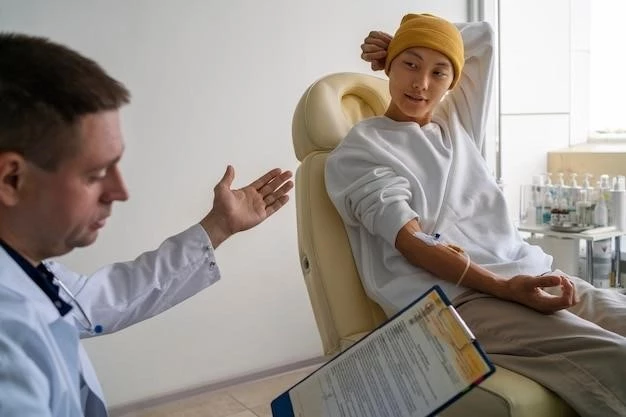Symptoms of Bazopoulou-Kyrkanidou Syndrome
Common symptoms
- Developmental delays
- Intellectual disabilities
- Speech and language difficulties
Rare symptoms
- Seizures
- Behavioral issues
- Motor skill impairments
Common symptoms
- Developmental delays
- Intellectual disabilities
- Speech and language difficulties
Individuals with Bazopoulou-Kyrkanidou Syndrome commonly experience these symptoms. Early detection and intervention are vital in managing the condition effectively.
Rare symptoms
- Seizures
- Behavioral issues
- Motor skill impairments
While less common, some individuals with Bazopoulou-Kyrkanidou Syndrome may also experience seizures, behavioral challenges, and difficulties with motor skills. These symptoms require specialized attention and management strategies.
Causes of Bazopoulou-Kyrkanidou Syndrome
Genetic factors
Abnormalities in specific genes are responsible for this rare genetic disorder.
Environmental influences
External factors may interact with genetic predispositions, influencing the syndrome.
Genetic factors
The Bazopoulou-Kyrkanidou Syndrome is primarily attributed to genetic mutations affecting specific genes. These mutations play a crucial role in the development of the syndrome, impacting various aspects of physical and cognitive functioning in affected individuals.
Environmental influences
External factors can impact the manifestation of Bazopoulou-Kyrkanidou Syndrome in individuals with genetic predispositions. These influences may include prenatal environmental exposures or postnatal conditions, adding complexity to the development and progression of the syndrome.
Diagnosis of Bazopoulou-Kyrkanidou Syndrome
Medical history
A comprehensive evaluation of personal and family medical histories.
Physical examination
A thorough physical assessment to identify characteristic features of the syndrome.
Medical history
Examining personal and family medical backgrounds is crucial in diagnosing Bazopoulou-Kyrkanidou Syndrome. Understanding the genetic and environmental factors at play helps healthcare providers assess the risk and likelihood of the syndrome.
Physical examination
Conducting a detailed physical assessment aids in identifying specific physical characteristics and developmental markers associated with Bazopoulou-Kyrkanidou Syndrome. This evaluation assists in confirming a diagnosis and developing tailored treatment plans to address individual needs.
Treatment Options for Bazopoulou-Kyrkanidou Syndrome
Medications
Pharmacological interventions may target specific symptoms of the syndrome.
Therapies
Therapeutic interventions like speech therapy can help manage symptoms effectively.
Medications
Individuals with Bazopoulou-Kyrkanidou Syndrome may benefit from medications targeting specific symptoms, such as behavioral issues or seizures. Careful monitoring and proper medication management are essential in optimizing treatment outcomes and improving quality of life for affected individuals.
Therapies
Various therapies, such as speech therapy, occupational therapy, and behavioral therapy, play a crucial role in managing Bazopoulou-Kyrkanidou Syndrome. These interventions aim to enhance communication skills, motor abilities, and behavioral patterns, ultimately improving the overall quality of life for individuals with the syndrome.
Prognosis of Bazopoulou-Kyrkanidou Syndrome
Long-term outlook
The long-term prognosis for individuals with Bazopoulou-Kyrkanidou Syndrome depends on various factors such as early intervention, symptom management, and access to support services.
Long-term outlook
The long-term outlook for individuals with Bazopoulou-Kyrkanidou Syndrome can vary. Early diagnosis, comprehensive care, and ongoing support can significantly improve outcomes, enhancing the individual’s quality of life and overall well-being over time.
Research Advancements in Bazopoulou-Kyrkanidou Syndrome
Recent studies
Ongoing research aims to deepen understanding, improve diagnosis, and enhance treatment approaches for Bazopoulou-Kyrkanidou Syndrome.
Recent studies
Recent studies on Bazopoulou-Kyrkanidou Syndrome have focused on identifying new genetic markers, exploring potential therapeutic targets, and investigating the impact of early interventions on long-term outcomes. These advancements contribute to the continuous evolution of knowledge and care practices for individuals with the syndrome.
Treatment developments
Recent treatment developments for Bazopoulou-Kyrkanidou Syndrome involve novel pharmacological agents to address symptoms more effectively and innovative therapeutic approaches aiming to enhance communication, cognitive skills, and overall quality of life for individuals with the syndrome. These advancements hold promise for improved patient outcomes and holistic care strategies.
Support Resources for Bazopoulou-Kyrkanidou Syndrome
Patient organizations
Organizations offer support, resources, and advocacy for individuals and families affected by Bazopoulou-Kyrkanidou Syndrome.
Online forums
Virtual platforms provide a community for sharing experiences and information among individuals living with the syndrome.
Patient organizations
Patient organizations dedicated to Bazopoulou-Kyrkanidou Syndrome offer vital support through information dissemination, community building, advocacy efforts, and access to resources like educational materials, support groups, and financial assistance programs. These organizations play a crucial role in raising awareness and improving the lives of those impacted by the syndrome.
Online forums
Online forums create virtual spaces where individuals and caregivers affected by Bazopoulou-Kyrkanidou Syndrome can share experiences, seek advice, offer support, and foster a sense of community. These platforms promote information exchange, emotional connections, and empowerment among participants navigating the challenges of the syndrome.

Lifestyle Management with Bazopoulou-Kyrkanidou Syndrome
Diet and exercise
Healthy lifestyle choices can positively impact overall well-being for individuals.
Mental health support
Prioritizing mental health is essential in managing the challenges associated with the syndrome.
Diet and exercise
A balanced diet and regular exercise can contribute to better health outcomes for individuals with Bazopoulou-Kyrkanidou Syndrome. Physical activity, combined with nutritious food choices, can enhance overall well-being, support healthy growth and development, and potentially alleviate certain symptoms associated with the syndrome.
Mental health support
Ensuring access to mental health resources is crucial for individuals with Bazopoulou-Kyrkanidou Syndrome. Psychological support and therapies can aid in coping with emotional challenges, improving overall psychological well-being, and enhancing quality of life for both individuals and their caregivers.
